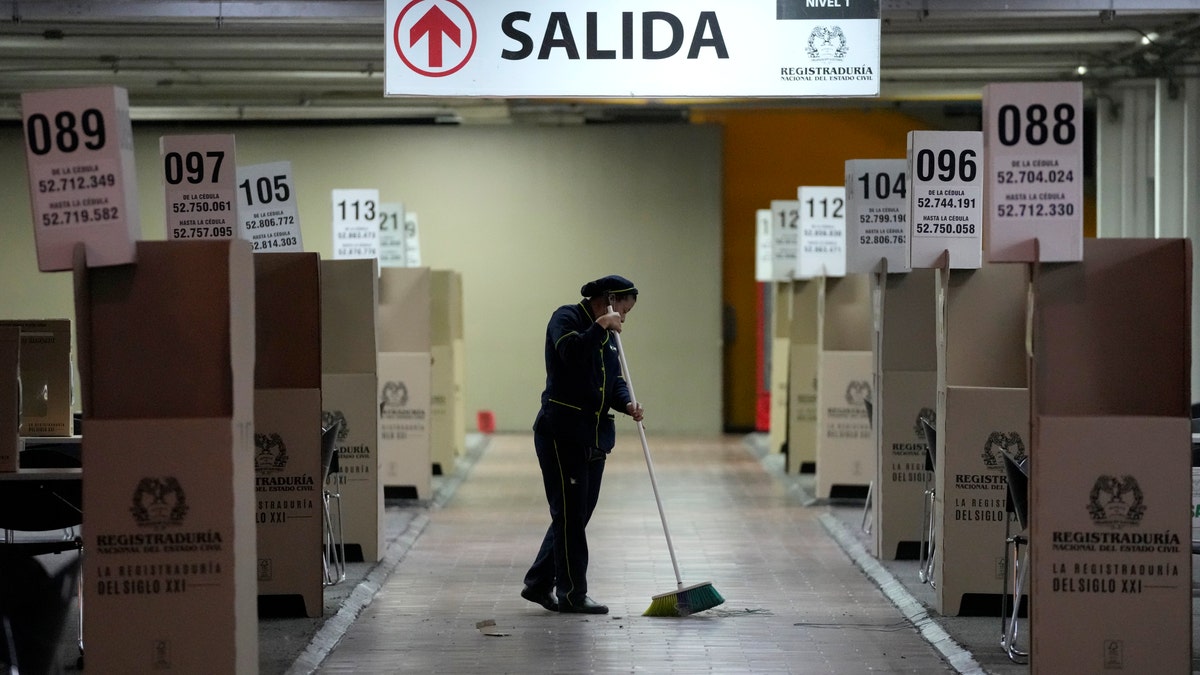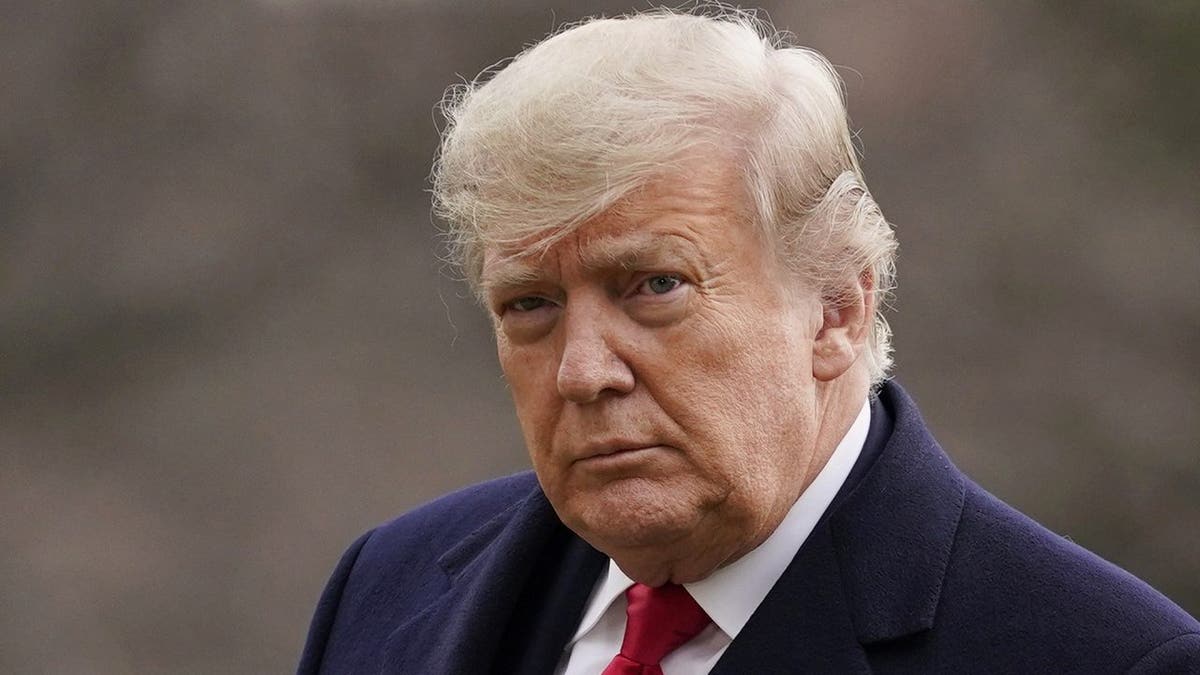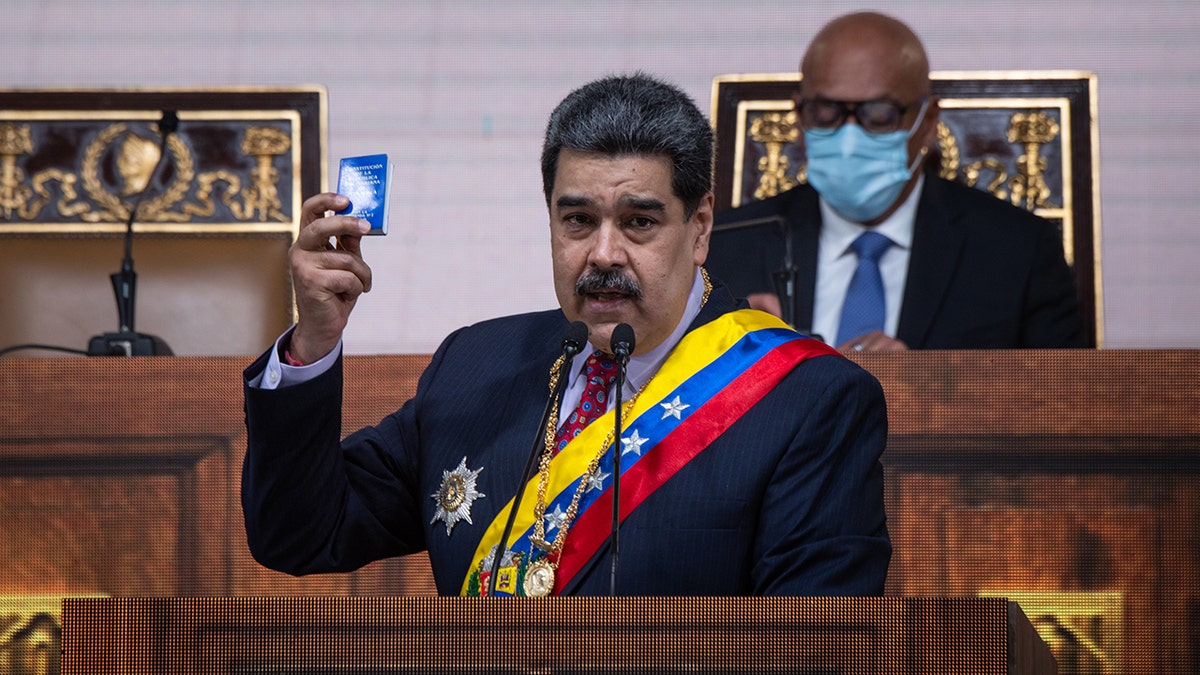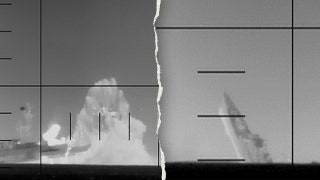Colombia’s president condemns Russia's 'most brutal genocide,' warns of autocracies disrupting democracies
Colombian President Iván Duque Márquez spoke with Fox News Digital during an exclusive interview ahead of an event celebrating 200 years of diplomatic relations between the U.S. and Colombia.
MEXICO CITY, Mexico – Colombia’s leftist candidate for president, Gustavo Petro, could make history in this Sunday's presidential runoff by becoming his country’s first-ever left-wing candidate to be elected to the post.
While the polls are razor-thin between Petro and his populist opponent, Rodolfo Hernández, a win for the left will be just the latest of several victories across the continent.
Critics say a socialist win in Colombia will undo years of sacrifice and effort to implement and maintain a policy of democratic security, respect for freedom, strengthening of the rule of law, free trade, greater openness to the world and even a commitment to become an innovation hub and pioneer of the orange economy (creative economy). They note, that all these milestones, stability and institutions are at risk.

This combination of photos shows Colombian presidential candidates Gustavo Petro, left, June 17, 2018, and Rodolfo Hernández on June 2, 2022, in Bogota, Colombia. (AP Photos/Martin Mejia, Fernando Vergara, Files)
The United States has had in Colombia a strategic ally and a reliable partner, the jewel in the crown that some observers say could be at risk in a world that is rapidly reconfiguring itself.
Petro has reportedly tried to distinguish himself from other leaders on the left across Latin America, promising to seek only one term.
"Rest assured that I will not seek re-election," Petro said, according to The Associated Press, while adding he "will respect the laws. ... Listen carefully, this includes respecting the right to private property."
McCAUL: US MUST ‘WAKE UP’ AND INVEST IN LATIN AMERICA TO GAIN EDGE OVER CHINA
Opponents of Petro say he is not afraid to hide his views, and they worry that he threatens to reverse and completely change the reality of Colombia by aligning himself with the socialist agenda of the São Paulo Forum, an organization of leftist politicians from the continent and the Caribbean.
They worry a close relationship with Venezuela, Russia and China or allies such as Iran could, from there, expand its malign influence throughout the region.
Maria Clara Escobar, executive director of Instituto de Ciencia Política (ICP), told Fox News Digital "a Petro government represents the opportunity for the Latin American left to consolidate a regional bloc with the ability to influence at the geopolitical level in its efforts to achieve a change in the international order by legitimizing the region's dictatorships, facilitating the penetration of authoritarian regimes such as Russia, China and Iran, weakening the inter-American institutional framework (Organization of American States) and creating new regional political and diplomatic blocs, from which they will support the weakening of regional democracy and the rule of law."

A woman cleans the capital's main voting center in preparation for the presidential runoff election in Bogota, Colombia, Friday, June 17, 2022. Sunday's runoff is between the man who could become the first leftist to lead the nation and a populist millionaire who promises to end corruption. (AP Photo/Fernando Vergara)
LATIN AMERICA BECOMES NEW EPICENTER OF CORONAVIRUS PANDEMIC
With the onset of the COVID pandemic, commentators say anti-establishment sentiment has grown in Latin America because of a lack of inclusive growth and prosperity. The economic and political effects generated by COVID-19 have caused discomfort and frustration in people, something Petro and other politicians have taken advantage of.
Yet while Petro won the first round handily, polls have become much closer in recent weeks as his challenger, Rodolfo Hernández, who some in the media describe as Colombia’s answer to Donald Trump, has narrowed Petro's lead to a statistical tie and now has every chance of winning.
The millionaire businessman became a social media phenomenon and has positioned himself among those who reject politics as normal. And, to the surprise of many, he came in second place, beating the establishment conservative candidate last month.
Still, Hernández has taken differing positions and is seen largely as a populist candidate. At 77, he's a former mayor who made his money from farming and real estate and has said he wants to target corruption and wasteful spending.
Yet others say he has more in common with the president of Mexico, López Obrador (AMLO), than Petro. This is a concern to some Colombians because, to them, Petro represents a greater threat. Rodolfo, as he is known, is viewed as not so different.

Some in the media have compared populist candidate Rodolfo Hernández to former President Donald Trump. (AP Photo/Evan Vucci, File)
Hernández is not affiliated with either political party, and his campaign to become president profited greatly by his use of social media, where most of his campaign was said to be waged.
MEXICO PRESIDENT SAYS HE WON'T ATTEND AMERICAS SUMMIT, WILL VISIT BIDEN IN JULY
Rodolfo has repeated AMLO´s slogans such as "Do not steal, do not lie and do not betray … There cannot be a rich government with poor people."
And Rodolfo does not hide his admiration for the Mexican president, who in turn, openly supports Petro.
Observers believe that while the choices are far from ideal, a Petro presidency will be problematic for the U.S.
Colombian Senator Paola Holguin, a member of the conservative Centro Democratico party, told Fox News Digital that "Rodolfo is an engineer and businessman from Bucaramanga who had good results during his tenure as mayor; he likes to be politically incorrect, but now he is the only guarantee to maintain democracy, freedom and (the institutions).
"His main flags are austerity and fighting against corruption. On the other side, Gustavo Petro is an amnestied former M-19 guerrilla, former mayor of Bogotá with a questionable administration who has received support from criminal structures such as ELN, FARC and Clan del Golfo (and) can be defined as a radical left populist who has been close to the leaders of the São Paulo Forum and the Puebla Group."
NICARAGUA APPROVES RUSSIAN TROOP ACCESS TO COUNTRY, DEFIES US OBJECTION
Analysts worry that if Petro wins, the United States could lose a great ally in the hemisphere and witness the continued growth of influence of Russia, China and Iran among its closest neighbors.

Nicolas Maduro, Venezuela's president, delivers a State of the Union address at the National Assembly in Caracas, Venezuela, Jan. 15, 2022. (Gaby Oraa/Bloomberg via Getty Images)
The growing wave of triumphs by the left in Latin America runs from Mexico through Honduras, Nicaragua, Venezuela, Bolivia, Peru, Chile and Argentina. After Colombia, Brazil could be the next domino to fall in a leftward direction if early polls in Brazil are to be believed for the upcoming October presidential election.
CLICK HERE TO GET THE FOX NEWS APP
Commentators say there is a lot at stake in Sunday’s election.
"No president of Colombia will be able to break this alliance that easily," said Joseph Humire, executive director of the Center for a Secure Free Society. "Gustavo Petro may try to do so if he is elected, but like Hugo Chávez in Venezuela, he will need more than four years to radically realign Colombia's foreign policy. Colombia shares more than government policies with the United States, we share culture."
Whoever wins Sunday, Colombian presidential politics will change drastically, and Washington will need to adjust and prepare, whatever the outcome.
The Associated Press contributed to this report.









































